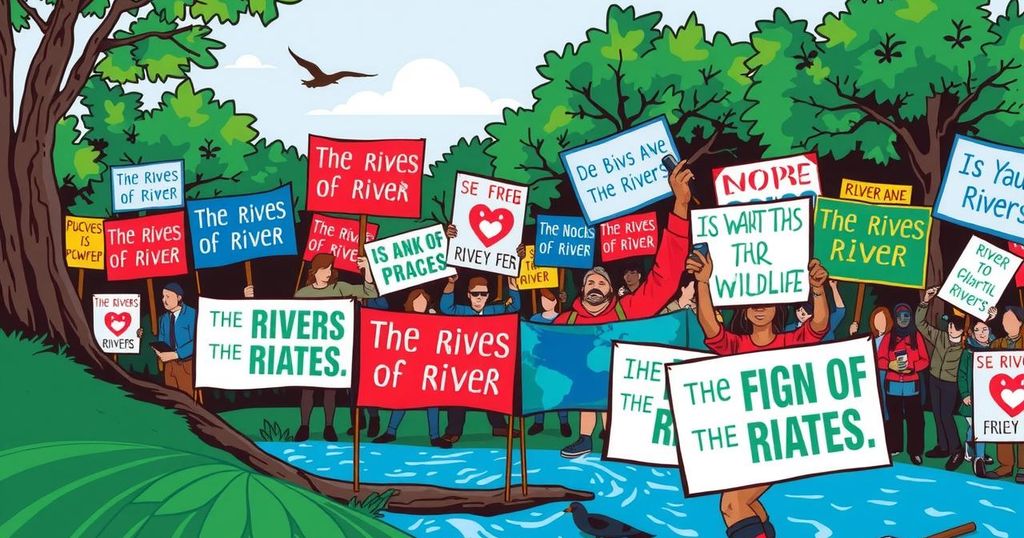Ecuador’s Oil Spill Crisis: Reflections and Calls for Action
A major oil spill in Ecuador’s Esmeraldas province has resulted in severe environmental and public health impacts. Over 25,000 barrels of crude oil have contaminated rivers and drinking water, prompting protests against government inaction. The aging pipeline system has a history of spills, raising concerns amid plans for new oil extraction activities. Advocacy efforts are underway to prevent further environmental degradation and protect Indigenous territories.
On March 13, coastal communities in Ecuador experienced a catastrophic oil spill, releasing over 25,000 barrels of crude oil into the rivers and protected areas of Esmeraldas. This disaster polluted significant waterways and led to the contamination of drinking water, affecting the health and economy of 500,000 individuals while severely damaging local ecosystems, particularly mangroves. Witness accounts described a massive oil eruption, leading the mayor of Esmeraldas to declare a national emergency for this unprecedented event.
President Daniel Noboa has worked to minimize the spill’s impact, downplaying initial estimates and delaying official disclosures. After a contaminated water reservoir breach further exacerbated the situation, local inhabitants expressed their outrage on April 7 as they protested the government’s inadequate response, revealing critical shortages of emergency services, such as clean water and food. Key economic sectors like fishing and tourism remain stagnated almost a month post-disaster.
Despite being in the area for a campaign event, President Noboa did not engage with affected communities, and government representatives neglected to inform Congress about any mitigation efforts undertaken. This event marks the most significant oil disaster in Ecuador in over three decades and highlights a longstanding issue of oil-related contamination in the nation. The Trans-Ecuadorian pipeline system, opened in 1972, was built with inadequate safety features, rendering it susceptible to catastrophic spills.
Since 1989, the aging infrastructure has been under Petroecuador’s management, yet systemic negligence and lack of disaster preparedness have led to numerous spills across the country. Government data indicated over 1,100 reported spills from 2005 to 2015, with the frequency only rising in subsequent years. The recent spill is indicative of the dire environmental and health situations continuing to threaten communities living near these aging pipeline networks.
Despite the risks, plans are underway by both the Noboa administration and opposition candidates to auction off new oil rights, which could potentially lead to increased ecological damage. This decision poses a tremendous threat to Indigenous territories and biodiversity as it would accelerate drilling in particularly sensitive rainforest areas.
Amazon Watch supports the coastal and Amazonian communities opposing such extraction plans, promoting initiatives aimed at halting additional drilling and oil spills. They will organize a delegation of Indigenous leaders to engage with Californian stakeholders, as California is the largest importer of Ecuadorian crude oil. Their goal is to secure protections that could leave around 800 million barrels of oil untouched, fostering environmental preservation and climate protection efforts.
In conclusion, the disastrous oil spill in Ecuador has highlighted the ongoing challenges related to oil extraction and inadequate government response to environmental crises. The neglect of safety protocols in pipeline construction and management has led to catastrophic outcomes for local communities and ecosystems. As new auction plans are proposed, advocacy groups like Amazon Watch emphasize the need for immediate action to prevent further drilling and protect vulnerable territories. Collaborative efforts among affected communities, environmental organizations, and international stakeholders are crucial for future protection and sustainability.
Original Source: amazonwatch.org




Post Comment